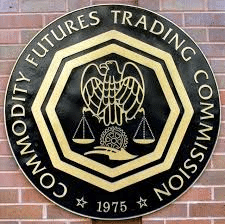The U.S. Commodity Futures Trading Commission (CFTC) has filed formal charges against Steven Lyn Scott for solicitation fraud, the misappropriation of client funds and other violations in connection with a fraudulent forex commodity pool, according to a CFTC statement.
CFTC Clamps down on Multi-Year FX Scheme
Dallas-based Steven Lyn Scott, who also goes by the alternative name of Stevon, is being charged for a variety of wrongdoings that focus on a comprehensive forex commodity pool scheme through Stewardship Financial Exchange, Inc., between January 5, 2009 and March 30, 2011. During this time, Scott managed to solicit at least an aggregate sum of $1,146,000 from no less than forty-three pool participants via forex transactions, contracts and other agreements – namely on a margined or leveraged manner. For these violations, the CFTC is seeking civil monetary fines, restitution payments for clients and additional trading bans in an attempt to prevent a repeat of the abuse.
The US regulator has been particularly active thus far in 2014 with a number of , whose . While Scott was ultimately the architect of the pool scheme, he had succeeded in recruiting numerous friends and family members, as well as public participants.
Scott Accused of Syphoning Client Funds
Stewardship Financial Exchange, Inc., which Scott owned an operated, was the nexus for myriad violations and fraudulent solicitations that allegedly guaranteed robust monthly returns – ultimately baseless – between two and five percent for all individuals who were locked into six-month contracts. Rather than trading participants’ funds, Scott is being accused of misappropriating no less than 50% of client funds for his own private use, through bank accounts, personal bank accounts and other personal expenses.
According to the CFTC complaint launched on March 19, 2014, “Scott allegedly omitted material facts, including but not limited to (1) that he failed to trade pool participants’ funds as promised, 2) that he misappropriated pool participants’ funds, (3) that he did not generate the monthly profits guaranteed to pool participants, and (4) that he was acting as a Commodity Pool Operator without being registered as such, as required by the Commodity Exchange Act and CFTC Regulations. Scott’s omissions were material and operated as a fraud or deceit upon pool participants.”





Be First to Comment